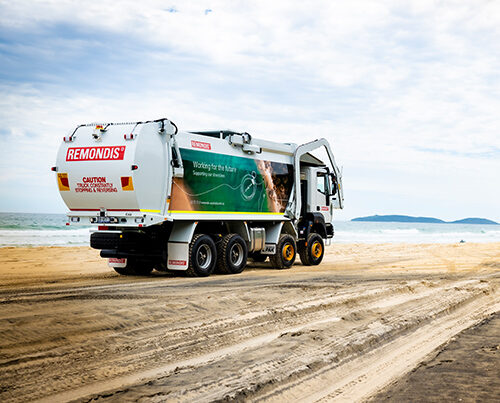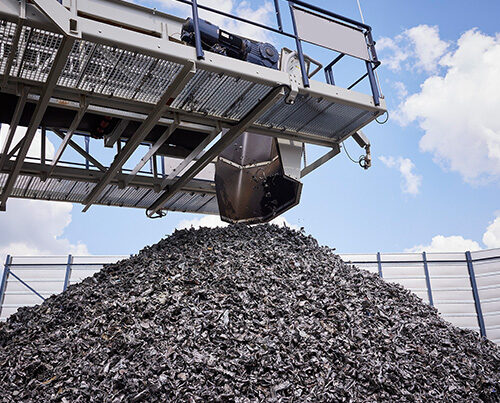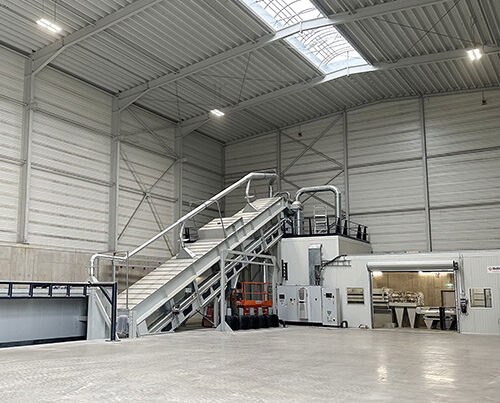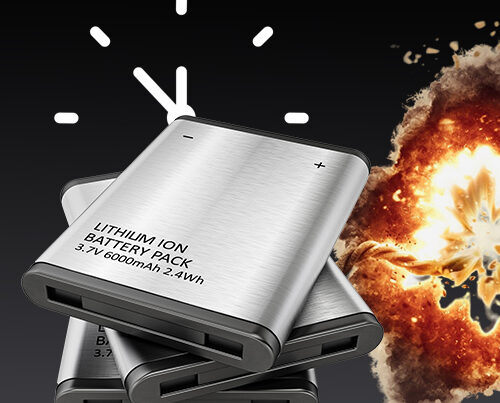An important announcement
On 27 September 2018, REMONDIS and Duales System Deutschland Holding GmbH & Co. KG (‘DSD – Der Grüne Punkt’) finally put an end to the rumours circulating around the industry. Having purchased all shares in DSD, this Lünen-based family-run company has re-entered the ‘dual system’ market after a four-year break. The acquisition must still be approved by the monopolies commission.
More obligations for manufacturers
REMONDIS decided to re-enter this particular market as it believes there are now good opportunities to grow packaging recycling rates, especially against the backdrop of the new Packaging Law, which is coming into force on 01 January 2019. In the future, all manufacturers – no matter whether they sell their packed products via online or ‘bricks-and-mortar’ shops – must have registered at a newly established Central Agency before placing their products on the market. People who fail to register may no longer sell their packed products from this day onwards.
“We really need to make every effort to ensure packaging becomes smarter and more environmentally friendly. The new Packaging Law aims to do just this. It has also set higher recycling rates and makes sure the costs are spread fairly among all distributors of packaging.”
Svenja Schulze, Environment Minister
A more transparent system
The manufacturers must also provide the Central Agency with information about their packaging, for example which packaging compliance scheme they are part of. The same is true for the operators of the different packaging compliance schemes. This will create a transparent system as the agency can simply compare the data submitted.

Manufacturers have been able to sign up to the online LUCID Packaging Register since September (i.e. four months before the new law comes into force). “We really need to make every effort to ensure packaging becomes smarter and more environmentally friendly. The new Packaging Law aims to do just this. It has also set higher recycling rates and makes sure the costs are spread fairly among all distributors of packaging,” explained Environment Minister Svenja Schulze. The Central Agency, which must act impartially, will also monitor what is happening on the market. Moreover, it should ensure that the market is fairer and that there is more competition between the market players. This is important as the agency will also be in charge of determining which companies collect sales packaging and glass.
New momentum in the ‘dual system’ market
Originally founded as a non-profit company, the packaging compliance scheme, Duales System Deutschland, now employs approx. 220 people and generates an annual turnover of 490 million euros. It is one of a total of nine ‘dual systems’ operating on the market for licensed waste packaging. Der Grüne Punkt has been recycling used sales packaging and recovering raw materials for re-use since 1991. A number of new firms have entered the ‘dual system’ market over the last few years, which has resulted in the company not only losing a good three-quarters of its original turnover but also changing hands several times. As a result, its annual results are well below the figures generally generated by medium-sized private sector firms operating in the industry and indeed below those of mediumsized public sector businesses, such as those owned by the City of Dortmund. Contrary to general belief, DSD no longer dominates the market as it did in the past. What’s more, the two large French companies, SUEZ (turnover: 15.9bn euros / workforce: 90,000) and Veolia (turnover: 25.125bn euros / workforce: 168,000), have both been operating their own ‘dual system’ packaging compliance scheme for a long while now, as do a number of medium-sized recycling firms who together own their own compliance scheme. Even Chinese companies have a considerable share of the market via their German associated company, ALBA / Interseroh.
A changing recycling industry
In fact, the recycling sector as a whole has undergone some major changes just recently. The decision of Chinese investors to purchase shares in the Scholz Group (1.634bn euros turnover), EEW (541m euros turnover) and Alba/Interseroh (1.28bn euros turnover) has led to a further diversification of the market over the last two years as well. A new market player has also joined the recycling industry: the Schwarz Group (Lidl/Kaufland), which had a turnover of 96.9 billion euros in 2017, thirteen times that of REMONDIS. Its workforce comprises 400,000 employees, making it larger than the whole of the German recycling sector put together. In July, the Schwarz Group’s subsidiary, GreenCycle, purchased Tönsmeier, the fifth-largest recycling company in Germany, acquiring a volume of sales three times bigger than all of the acquisitions made by REMONDIS in 2016 and 2017. Moreover, this retail group will become a major competitor on the ‘dual system’ market via its subsidiary PreZero Dual GmbH, a company previously run under the name SDL Sigma GmbH. The increase of digitisation has also added momentum to the market. A number of firms belonging to the Schwarz Group, for example, offer online platforms for business customers and a contract platform for ‘dual system’ companies and their customers.
“All around the world, politicians are – with good reason – talking about plastics recycling. DSD’s global standing will help open up new opportunities here, too – we will be on a level playing field with the other competitors in this market which means we will also be able to grow our business abroad.”
Ludger Rethmann, Board Chairman of REMONDIS
Improved conditions for international growth
Thanks to its acquisition of DSD, REMONDIS will now be able to offer its customers even more services – closed-loop systems, sustainable product designs and a better position regarding packaging licensing thanks to recyclable pack-aging to name just a few. What’s more, most of the other EU member states still need to introduce packaging compliance schemes similar to the German ‘dual system’ as do countries beyond Europe, such as Russia and China. If REMONDIS is to be able to operate on these markets as a reliable and expert partner, then it must also play a role on its own packaging recycling market. “All around the world, politicians are – with good reason – talking about plastics recycling. DSD’s global standing will help open up new opportunities here, too – we will be on a level playing field with the other competitors in this market which means we will also be able to grow our business abroad,” explained Ludger Rethmann, board chairman of REMONDIS.
Image credits: © REMONDIS







